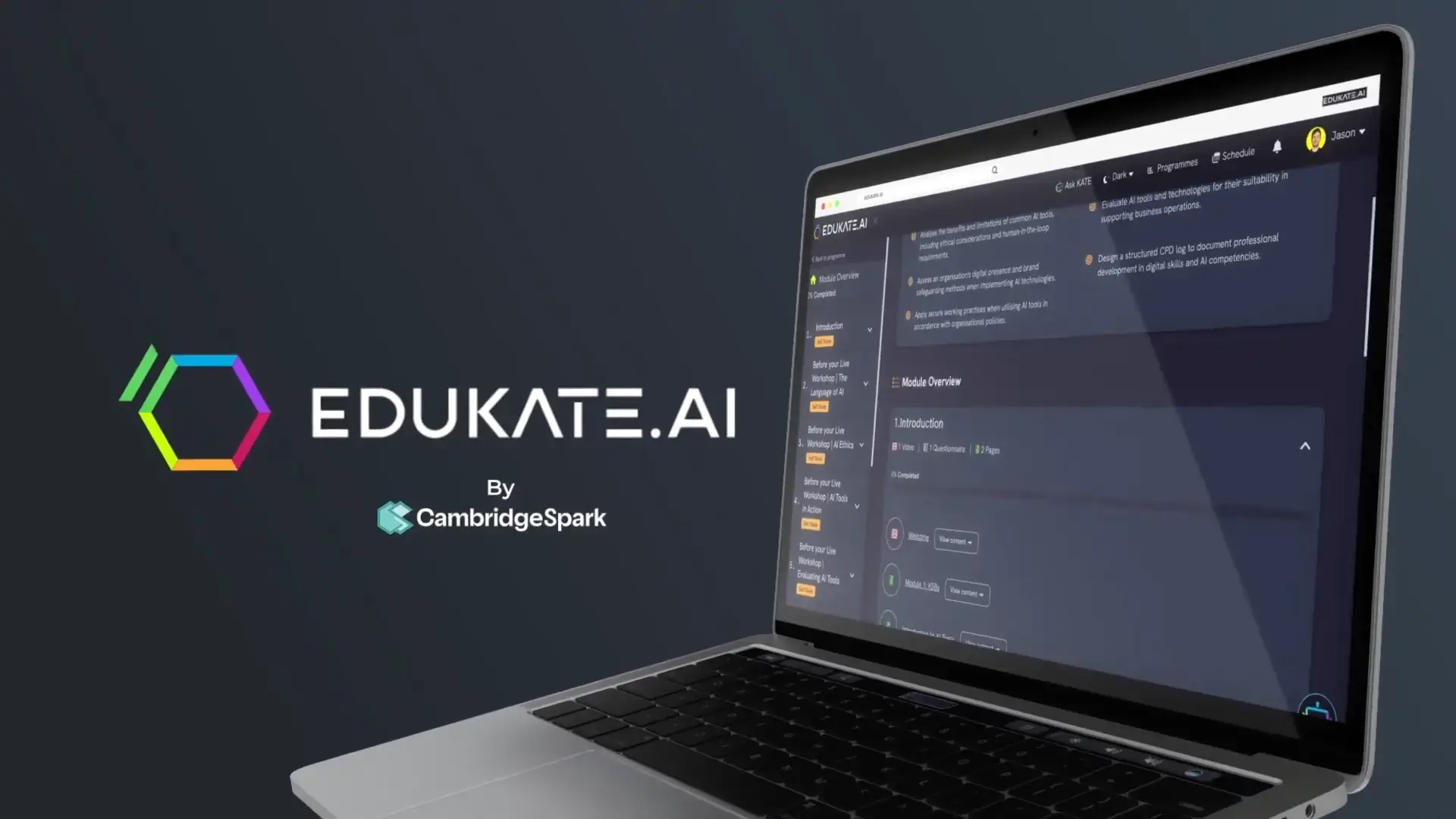Apprenticeships
A full-stack skills solution for Data & AI funded by the UK Apprenticeship Levy
Data & AI skills to accelerate business outcomes
Data & AI Practitioner Programmes
Apprenticeship
Data Citizen
Level 3
13 months
Master the essential mindset, tools and skills to thrive in a data-driven organisation.
- The value of data
- Storytelling with data
- Create real-time dashboards
- Automate time spent on spreadsheets
Apprenticeship
Data Analyst
Level 4
14 months
Leverage the analytics power of Python, SQL and introductory machine learning.
- Automate reporting and processes
- Build self-service teams for data
- Practical hackathon
- Specialist electives available
Apprenticeship
Data Engineer
Level 5
14 months
Develop key internal capabilities to raise the usability of critical datasets in your organisation.
- Python programming
- SQL
- Data modelling
- Software testing
Apprenticeship
AI Engineer
Level 6
15 months
Master the skills to operationalise machine learning, build and deploy real-world AI solutions.
- Practical Machine Learning Techniques
- Securing and Optimising ML Systems
- Generative AI and Large Language Models
- Machine Learning in Production
Transformation Programmes
Apprenticeship
AI Champion
Level 3
13 months
Accelerate your Organisation's AI Transformation and increase productivity through the adoption of Gen AI tools like Microsoft Copilot.
- Identify, use and champion the use of AI tools.
- Support the implementation and roll-out of AI solutions.
- Support and continuous improvement.
Apprenticeship
AI Transformation Specialist
Level 4
14 months
Master the skills to leverage AI responsibly, drive accelerated business outcomes and future-proof your career in the AI era.
- AI-driven business analysis and transformation
- Data & AI for business value
- Process Modelling for digital transformation
- Managing Business change and impact
Apprenticeship
Digital Product Manager
Level 4
14 months
Build and manage digital products that meet customer needs and generate growth.
- Data analysis for product management
- User-centric design
- Stakeholder management
- AI for product management
Apprenticeship
AI Workflow Specialist
Level 4
12 months
Become a specialist who builds and governs autonomous workflows.
-
Master tools like n8n and Copilot to automate complex, repetitive tasks.
-
Deploy your first production-ready AI workflow within just six weeks.
-
Earn a Level 4 qualification through 100% fully funded, hands-on training.
One apprentice can create real business impact
£1.4m revenue identified through data-driven insights
£120,000 saved by creating efficiencies
90% shorter project times achieved through automations
5x faster ML model training achieved through automations
Delivery and learner support designed to maximise impact
We deliver all of our programmes online, helping our clients offer flexible and inclusive programmes open to all of their staff. We believe that the gold standard for online delivery is to offer a mix of experiential learning, coaching, technical mentorship and peer support.
24/7 immediate feedback
EDUKATE.AI is our learning platform designed for data science education which gives learners immediate and personalised feedback on their code.
Fast skills deployment
Learners apply their skills to real datasets from their first day of learning, with assignments on EDUKATE.AI simulating a working industry environment.
Tailored expert curriculum
A modular curriculum developed with leading experts from academia and industry to meet all skills needs in an organisation.
Peer support
Engagement and support from peers through the Knowledge Base, our Q&A feature built into EDUKATE.AI.
Easy set up
Our cloud-based platform requires no installation or setup for our learners, with their content available whenever they need it.
Powering skills development in Data Science

Enquire now
Fill out the following form and we’ll contact you within one business day to discuss and answer any questions you have about the programme. We look forward to speaking with you.



